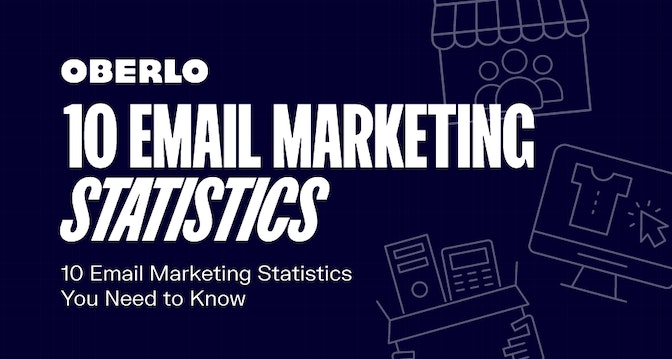If you’re sourcing products for your dropshipping store’s inventory, you’ll be glad to hear that there are a variety of different platforms that you can use to find high-quality products at an affordable price point.AliExpressis one of the largest platforms for ecommerce entrepreneurs to find dropshipping products. The majority of suppliers who list their products on AliExpress are legitimate business owners, but a few bad apples list copyrighted or counterfeit goods on the platform, which can cause issues for dropshippers.
We’ve created this article to inform you how you can avoid counterfeit goods on AliExpress, and to detail the implications you’ll face if you’re found to be selling these goods. By the time you finish reading this article, you’ll be equipped with all the knowledge that you need to ensure that your dropshipping business is selling goods legally.
Post Contents



What Are Counterfeit Goods?
Counterfeit goods are fake products that carry the name and logo of a particular brand. The items may appear legitimate and safe but are produced and sold illegally. When you purchase counterfeits, you’re not actually buying from the brand owner. Top counterfeit products include designer bags and garments, electrical items, clothing, toys, watches, and cosmetics.
There are good reasons to avoid counterfeit goods. Typically, they’re of inferior quality to the original product and may not work as intended. Some may even put the health and safety of your customers at risk. For example, fake cosmetics are not as rigorously tested as genuine ones need to be, so they may cause allergies or damage the skin.
Besides all of that, you’re likely to experience business-related issues if you keep shipping counterfeit goods to your customers. We’ll discuss them later in the article.
Counterfeit Goods Statistics
While the issue of fake goods may not seem like a big deal to many, counterfeit goods statistics suggest that it’s a growing problem that’s ringing alarm bells across global supply chains.
According to Research and Markets’2018年全球品牌伪造报告, global online counterfeiting caused losses of more than $320 billion in the year 2017. The report also states that the value of total counterfeiting reached $1.2 trillion in 2017 and is expected to surpass $1.82 trillion by the end of 2020.
One of the reasons behind the growing value of global online counterfeiting is the influx of fake products from China. In 2018,87 percent of all counterfeit items seized at US portscame from Hong Kong or China. Since it’s easier to make and sell knockoffs in China than in other countries, the majority of producers manage to make a hefty profit as well as escape legal repercussions.
Although the Chinese government is making efforts to crack down on the production of counterfeit goods, it is difficult to monitor everyone due to the sheer size: there are millions of sellers on AliExpress and other platforms. Each seller is selling products from all types of different wholesalers, retailers, and other suppliers. To identify every source of counterfeit goods is a near-impossible feat. This fact makes it crucial that you remain vigilant when dropshipping products from China.
Sourcing Products on AliExpress

When you’re sourcing products for your ecommerce business,AliExpress is a great platformto take advantage of. Searching for dropshipping products on AliExpress is simple. You can simply enter a term related to your desired products in their search bar, and you’ll be presented with a wide variety of related listings. The enormous number of products available on AliExpress is a blessing for dropshippers. Still, there are also some copyrighted and counterfeit goods on the platform, which you should do your best to avoid.
It’s best to avoid copyrighted products, in general, when you’re sourcing inventory from AliExpress. This includes products that are related to movies, TV shows, video games, or any other media outlets that may have merchandise.
It’s also vital that you avoid sourcing counterfeit goods from AliExpress, including cosmetics, handbags, clothing, watches, and electronics. Not only will selling these products give your online store a bad reputation, but it could also, in the worst-case scenario, get you into trouble with the law.
Legalities of Selling Copyright or Counterfeit Goods

As an ecommerce entrepreneur, there are various ways that you and your ecommerce business can be negatively impacted by selling copyrighted or counterfeit products. We’ve put together a list of issues that you may run into when you’re selling counterfeit or copyrighted products below:
1. Issues With Your Payment Gateway When Selling Counterfeit Goods
你可能会俄文n into problems with your payment gateway if you’re selling counterfeit goods. Payment gateways may ask you to provide a reseller agreement for the products which you’re selling so that they can clarify that you’re legally allowed to do so. If you fail to provide this documentation, then you’ll be blocked from using the payment gateway, which means that you won’t be able to receive money from your sales. The only way that you can get around this issue is to provide the payment gateway with a reseller agreement or start a new business selling legitimate products.
2. Issues With Your Facebook / Instagram Accounts
If you sell copyrighted or counterfeit goods from your online store, you may run into problems with your Facebook or Instagram accounts. If you’ve been working hard tobuild up a followingon these platforms, you face the potential of having your accounts permanently banned if you’re found to be selling counterfeit or copyrighted goods. This can be especially problematic if you’re using the platforms to advertise your business. If you’ve been finding success with these platforms, then you’ll need to find a whole new channel to drive traffic to your store, so you must avoid selling illegitimate products.
3. You May Need to Close Your Store
If you’re found selling copyrighted or counterfeit goods on your store, then you may be contacted by the producers of the original product. In this situation, you may need to remove the product from your store, shut your store down completely, or face legal action. Taking this into consideration, it isn’t worth stocking these items in your store’s inventory and facing this risk.
4. You May Have to Pay A Penalty If You Sell Counterfeit Goods
The federal law systems in most countries make it illegal to sell counterfeit goods. If you get caught selling fake products, you will have to pay the penalty. The maximum penalty for offenders in the US is a $2 million fine and ten years in prison. In the UK, those involved in the trade of counterfeit goods face an unlimited fine and a maximum sentence of ten years. The best way to avoid a financial hit and jail time is to ensure that you’re not making anydropshipping mistakeswith product selection.
5. Your Competitors May Harm Your Brand’s Image
If your competitors find out that you’re selling counterfeit goods on your store, they might take steps to damage your brand’s image. For example, they can sponsor a press release to inform people that they’re in for a risk when they choose to shop from your website. They can also work with influencers to spread negative word of mouth about your business. If you’ve worked hard tobuild a brand imageand have a good reputation in your niche, avoiding counterfeits should be at the top of your agenda.
Best Practices for Sourcing Products From AliExpress

Although there are some counterfeit products on AliExpress, the majority of the products are legitimate and are perfect for your online dropshipping store. You must know how to avoid the illegitimate products when you’re adding products to your inventory. Here’s a list of best practices that you can follow when you’re sourcing products from AliExpress:
1. Check Product Review
当你采购产品从阿里巴巴全球速卖通always a good idea to check out the product reviews. Here you’ll see a general idea of how customers feel about the product, and you’ll likely find images of the product too. If you check out the product reviews, you’ll get an idea for the quality of the product, the shipping times, and you’ll also gain an understanding of who your target audience is. We highly recommend doing this when sourcing products from AliExpress — simply check the ‘Feedback’ section just underneath the product images, and you’ll find all the information you need.
2. Check Product Star Rating
AliExpress has a product star rating for each listing on the platform. You can use the star rating of a product to identify if the product is legitimate in two ways — the overall rating, and the number of reviews it has. You can locate this information just above the product description. If you find that the product has a high overall product star rating and lots of reviews, it’s likely a legitimate product that is high-quality — a perfect addition for your dropshipping store.Products to avoid dropshippinginclude items with 4.0 stars and below.
3. Check Supplier Feedback Score
When you’re sourcing products from AliExpress, it’s also a great idea to check the supplier’s feedback score. You can access their feedback score at the top left corner of the product listing. If you find that the supplier has a high feedback score, then it’s a strong indication that their products will be legitimate. You can also see how long they’ve been active on AliExpress, which will give you a good idea of the legitimacy of their products — if they’ve been active for a while, then you can assume that they’re reliable suppliers.
4. Check Logo and Other Trademarks
Even if the products look authentic, compare the logo on them with how brands usually place their logos. Fake products often feature poorly copied logos, and the trademarks on them are often misspelled. Another thing to watch out for is how all the trademarks are placed on the same item. Counterfeit production can be so sloppy that not all of the trademarks on the same product appear like they’re supposed to. Many fake products have slogans that don’t align with the logo — this is a red flag that indicates the item might be a counterfeit.
5. Check Supplier’s Other Products & Guarantees
A supplier who deals in several types of products or brands is likely to sell counterfeit goods. For example, a lot of fake power bank suppliers offer products from various brands at low prices. You can check this by reviewing the ‘Seller’s Categories’ section on the AliExpress website. Additionally, consider the product warranty offered by the seller. This can be seen in the ‘Seller Guarantees’ tab on an item’s page. Fake products are usually sold without a warranty. Still, a seller may offer a generous warranty (few weeks to a month’s warranty for electronics, 2-3 months’ warranty for clothing, and other similar items) to gain your trust. Remember, original products carry a warranty for 1-5 years.
6. Create a Test Order
It’s always a great idea to create atest orderfor any products that you’re sourcing from AliExpress. This will mean that it’ll take you a little longer to start making sales, but it’ll pay off in the end as you’ll be able to analyze the products that your customers will be receiving. Think of a test order as your very own quality assurance!
7. Try to Avoid Trending Items
It’s usually a good idea to avoid trending items, especially if you’re late to the surge in popularity. The reason for this is that you may be unknowingly selling counterfeit goods, which can land both you and your business in legal trouble. Some suppliers will try to cut corners when the demand for their product increases, so it’s best to be vigilant of this.



Want to learn more?
- GDPR Compliance for Ecommerce: What Store Owners Can Do
- How To Select Dropshipping Suppliers
- What Should You Sell Online?
- [VIDEO] Selling Online: Products to Avoid With a Dropshipping Ecommerce Store
Is there anything else you’d like to know more about and wish was included in this article? Let us know in the comments below!



